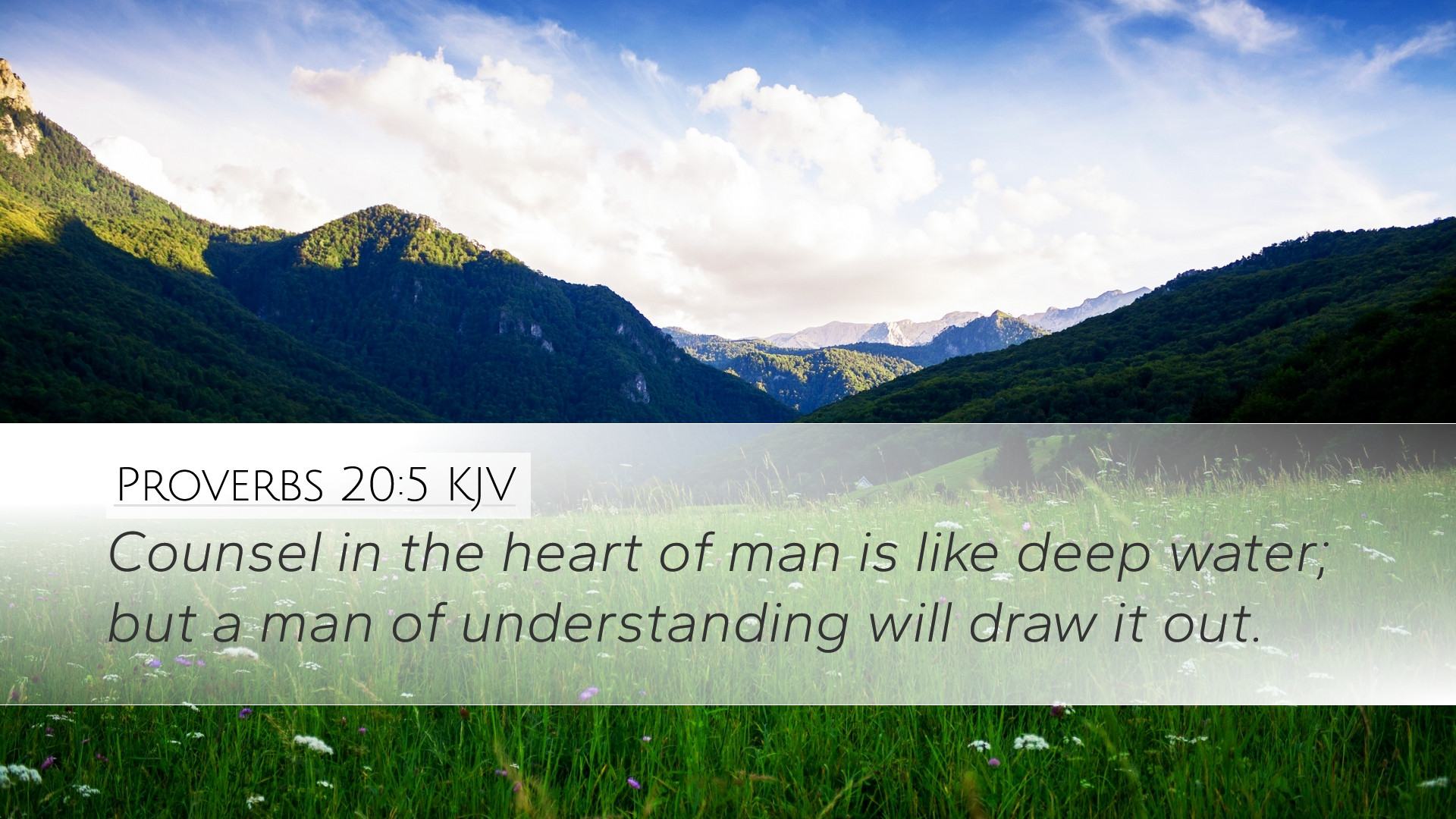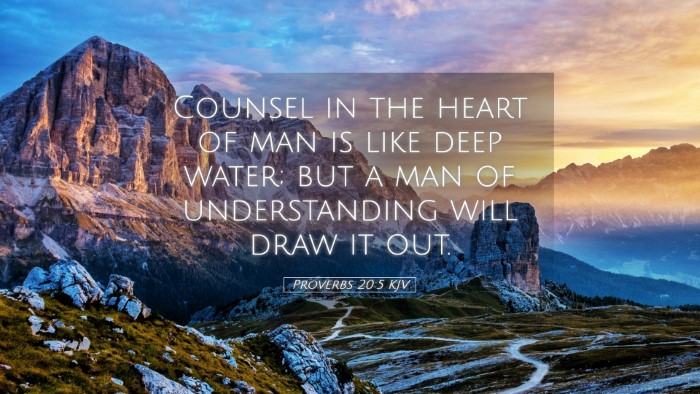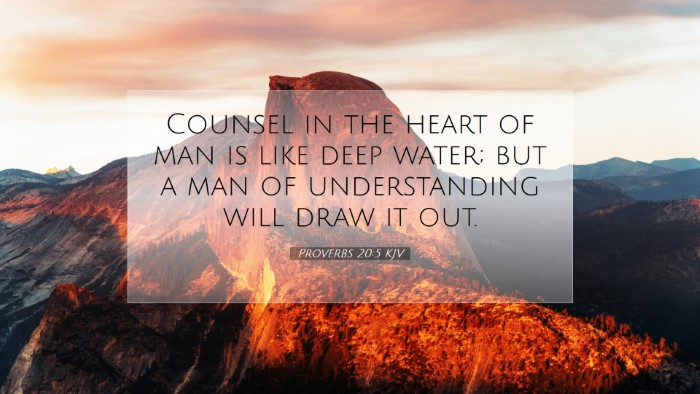Commentary on Proverbs 20:5
Verse: "Counsel in the heart of man is like deep water; but a man of understanding will draw it out." - Proverbs 20:5
Introduction
The verse from Proverbs 20:5 speaks profoundly to the nature of wisdom and understanding in human affairs. It draws a vivid picture of counsel as deep water, implying richness and depth in the knowledge and understanding that resides within a person's heart. Meanwhile, the emphasis on a 'man of understanding' suggests the necessity of discernment and effort to extract this wisdom. Here, we will explore insights from various public domain commentaries including those by Matthew Henry, Albert Barnes, and Adam Clarke to unveil the layers of meaning embedded in this single verse.
Interpretation of the Text
This verse operates on two levels: the nature of counsel and the role of understanding in accessing it.
Counsel as Deep Water
Matthew Henry emphasizes that counsel, akin to deep water, suggests that the truths, decisions, and insights that lie within are not superficially available. Just as deep water requires one to dive deep to access its treasures, so does the counsel found in the hearts of individuals require insight and diligence to uncover. He notes that a person's heart is a reservoir of wisdom, often overlooked by those who do not take the time to engage with it.
The Man of Understanding
In contrast, Barnes focuses on the 'man of understanding,' suggesting that this individual possesses the skill to perceive and extract valuable insights from deep within—the 'deep waters' of counsel. Barnes asserts that such a person not only recognizes the wealth of advice available but also knows how to draw it out through questions, discussions, and reflective thought, much like one would draw water from a well.
The Importance of Dialogue
Further elaborating on the extraction process, Adam Clarke highlights the importance of engaging in dialogue. He posits that wisdom often emerges in conversation—through probing questions and careful listening. The act of drawing out counsel involves more than mere inquiry; it requires relationship and trust, underscoring the communal aspect of wisdom in the biblical context.
Application for Life
This exploration of Proverbs 20:5 brings several practical applications for pastors, theologians, and students of the Bible:
- The Value of Listening: There is an inherent value in listening intently to those around us, as their hearts may hold counsel that could influence our own understanding and decisions.
- Encouraging Wisdom in Community: This verse encourages a communal approach toward wisdom, challenging us to create environments that foster dialogue where counsel can be shared and explored.
- Commitment to Depth: Like deep waters, seeking counsel requires patience and deliberation. We should encourage ourselves and others to look beyond surface-level answers.
Theological Reflections
In a theological context, this verse speaks to the nature of divine wisdom. Just as the heart holds counsel, so does God warrant a depth of insight regarding creation, human existence, and the divine will. The process of drawing out wisdom reflects the relationship between humanity and the divine, where prayer, meditation, and scriptural engagement become means through which we unearth God's counsel for our lives.
Divine Counsel
Both Henry and Barnes suggest that, ultimately, God Himself is the source of the most profound counsel. The pursuit of wisdom should lead individuals to seek God's guidance through the Word and prayer, reinforcing the importance of nurturing our spiritual lives.
Conclusion
Proverbs 20:5 encapsulates powerful truths about counsel, understanding, and the relational aspects of wisdom. As we reflect on the insights shared by Henry, Barnes, and Clarke, we find a rich tapestry of meaning that beckons us into deeper relationships, both with one another and with God. This fervent pursuit of wisdom transforms not only our personal lives but enriches the communities in which we engage, pointing ultimately to the divine source of all understanding.


